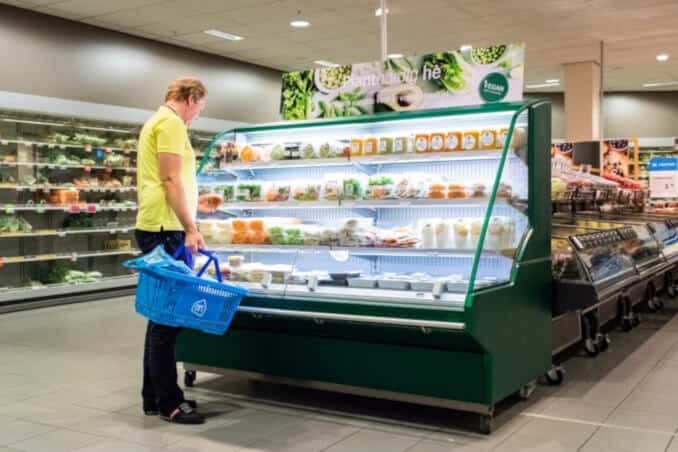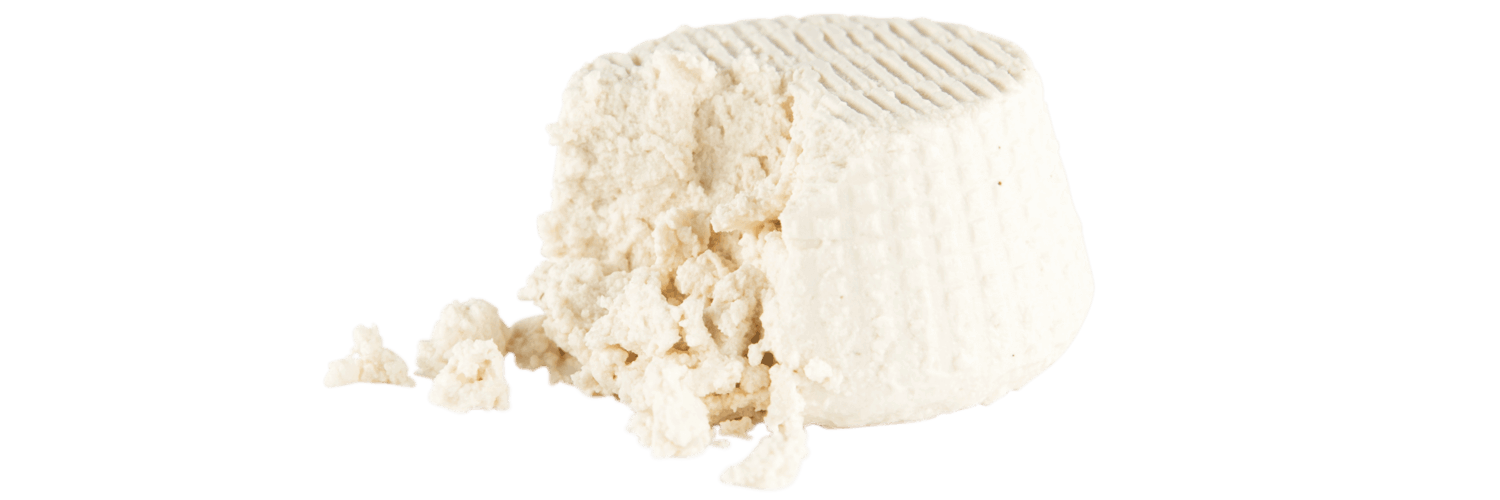A guest post from Future Grocery Shopping
Monitoring the European plant-based cheese market for over two years now, we have seen a lot happening: numerous start-ups launched, supermarkets – even discounters – created their own plant-based cheese labels, while new players -some from traditional dairy and FMCG – entered the arena.
The result is a very diverse palette of brands differing in size, product range and reasons for being active in the market. As the industry is awaiting technological advances improving taste and texture, some dairy cheese manufacturers enter the market by giving their most popular cheeses a plant-based makeover.
Booming Demand
For us, it began in 2020 when several studies signalled the booming demand for plant-based products in general and plant-based cheese specifically. Although quite some plant-based options were already available, the market was in demand for more and better plant-based cheeses.

The demand encouraged new and existing manufacturers to develop two distinctive cheese types: first of all, we saw an increase in ‘simple’ cheese analogues mimicking Gouda and Cheddar as well as shredded (pizza) cheese. Violife (part of Upfield) is by far the most famous brand within this category, but there are plenty more to be found in Europe. For example, Simply V (Germany), Sheese (UK), and Vegan Deli (Monaco) produce cheeses like these. They often have coconut oil, water, and starches as their main ingredients. Cheese analogues like these are relatively easy to make and don’t require ageing
Therefore many new players, among which supermarkets, were able to jump the wagon and started to provide a generic plant-based cheese under their own labels. Among them Penny’s Food for Future brand (Germany) Albert Heijn (The Netherlands) and Tesco (UK).

Simultaneously, the industry started developing more elaborate, fermented alternatives for cheeses like Camembert, Roquefort, Feta, and Mozzarella. All over Europe, start-ups have gotten engaged in this type of cheese-making. Most fermented cheeses are made from nuts like cashew, macadamia, or almond, But other bases can be found as well, including soy, seeds, and rice.
The fermentation takes place with the help of bacterial cultures. Many of these new cheese companies are small and sell their products on a local or regional basis. Especially in the UK, we were able to identify many one-person companies engaged in this business. But there are also various examples of companies that started selling cheese beyond their borders. Cheeses like those of Jay & Joy (France), Mondarella (Italy), Dr. Mannah’s (Germany), Yogan Creamery (Portugal), Mommus (Spain), Rosie and Riffy (Netherlands), and New Roots (Switzerland) can be found in stores all over Europe.

Within the fermented cheese category, we expect the most important changes to take place over the next few years: a lot of money and effort is currently put into so-called precision fermentation whereby genetic information is introduced into fungi or yeast to have them produce Casein, a cheese protein available in dairy milk. These developments improving taste and texture are seen as crucial for plant-based cheeses to become a real alternative to dairy ones.
Plant-based cheese companies like Those Vegan Cowboys (Netherland) and Stockeld Dreamery (Sweden) put much effort into precision fermentation to develop a better product.

A plant-based make-over
The dairy industry got wind of the developments and as they see their (future) clients making a move to plant-based products, they have started coming up with strategies to assure their future relevancy. Next to acquiring plant-based cheese companies or establishing a new plant-based brand, some dairy cheese companies started developing plant-based alternatives to their already successful cheeses.
Leading this trend is, without doubt, Bel Group which recently introduced plant-based versions of their world-famous Babybel snack cheese and their Boursin creamy cheese. A plant-based variant of their Laughing Cow cheeses is expected in 2023.

But there are more recent examples: Dodoni, famous for Greek Feta cheese, recently introduced a plant-based version of their cheese, based on coconut oil and potato starch, available under the name Plant’d Greek White. Dutch popular cream cheese Heksenkaas (Witches’ Cheese) and Ilchester Vegan are also examples of Dairy cheeses that had a plant-based make-over lately.
As technology advances and price-parity may come into view, we do not doubt that the year to come will have even more new promising developments for plant-based cheeses in store.





